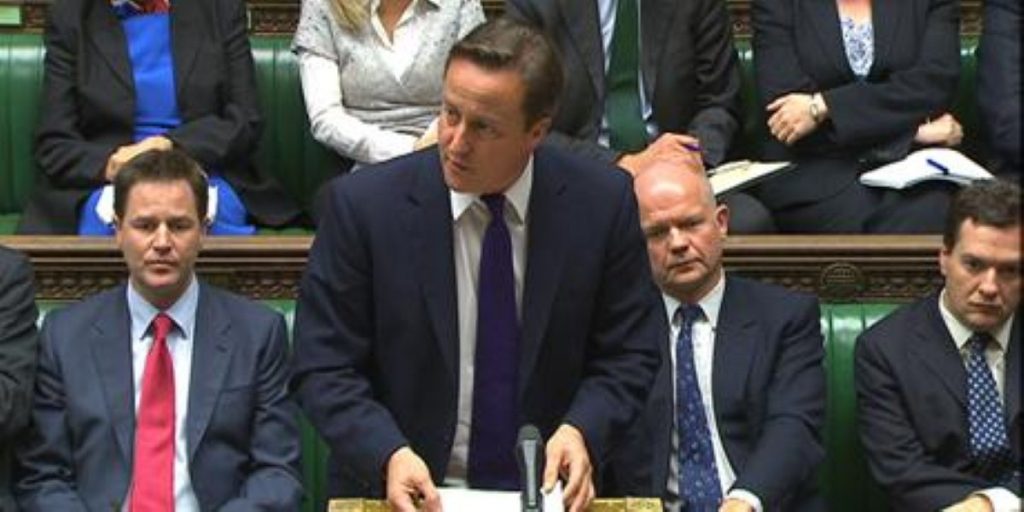PMQs Verdict: All quiet on the Westminster front
Prime ministers questions is widely reviled by members of the public, many of whom see it as embodying everything that is bad about the current political system.
The weekly slanging match is usually described either in terms of metaphors about playgrounds, zoos, or a combination of the two.
Although unedifying on screen, the proceedings are if anything far worse when viewed from the press gallery. The broadcaster's directional microphones fail to pick up the sheer volume of MPs and a lack of reaction shots hides much of their worst behaviour.
This bad behaviour is so widespread and ingrained that it is almost shocking when they behave differently, as they did today.


In extraordinary scenes, Ed Miliband, who has spoken before about wanting to change the tone of these sessions, devoted all of his questions to make sensible and entirely non-partisan points to the prime minister.
With British citizens at risk of barbaric deaths in Iraq, the Labour leader judged that it was not the time for the usual weekly shouting-match.
His questions were met with uncharacteristically respectful silence from other MPs and the prime minister.
Cameron, who might otherwise have expected ridicule over Douglas Carswell's defection to Ukip, was clearly relieved by this and congratulated Miliband on his "entirely right" approach to the session.
As one of those who have complained about these sessions before I might be expected to agree with him, but I have to admit to have been slightly disappointed.
Prime minister's questions may not be edifying, the jokes may be terrible and the backbenchers may be revolting, but there is also something almost admirable about it.
Rightly or wrongly, the public expect their politicians to ridicule and mock each other.
Unlike other countries where politicians are treated and treat each other with cloying levels of deference, the British system is based on the idea that MPs are a bad lot and should be treated accordingly.
This is clearly a false belief. There are many public spirited MPs who work hard for their constituents and the country and are largely ignored by the press and wider public as a result.
But I would rather have the current system where politicians are assumed to be wrong 'uns until proven otherwise, than to switch to a system where deference and complacency rule the day.
With horrific scenes taking place in Iraq, Miliband was almost certainly right to take a different approach to today's PMQs. And with the Scottish people currently considering whether to ditch rule from Westminster, it is probably no bad thing for MPs to be seen on their absolute best behaviour for the next few weeks.
But if Miliband's approach today ceases to be the exception and becomes the rule, then British politics will head in a direction that we may unexpectedly come to regret.









